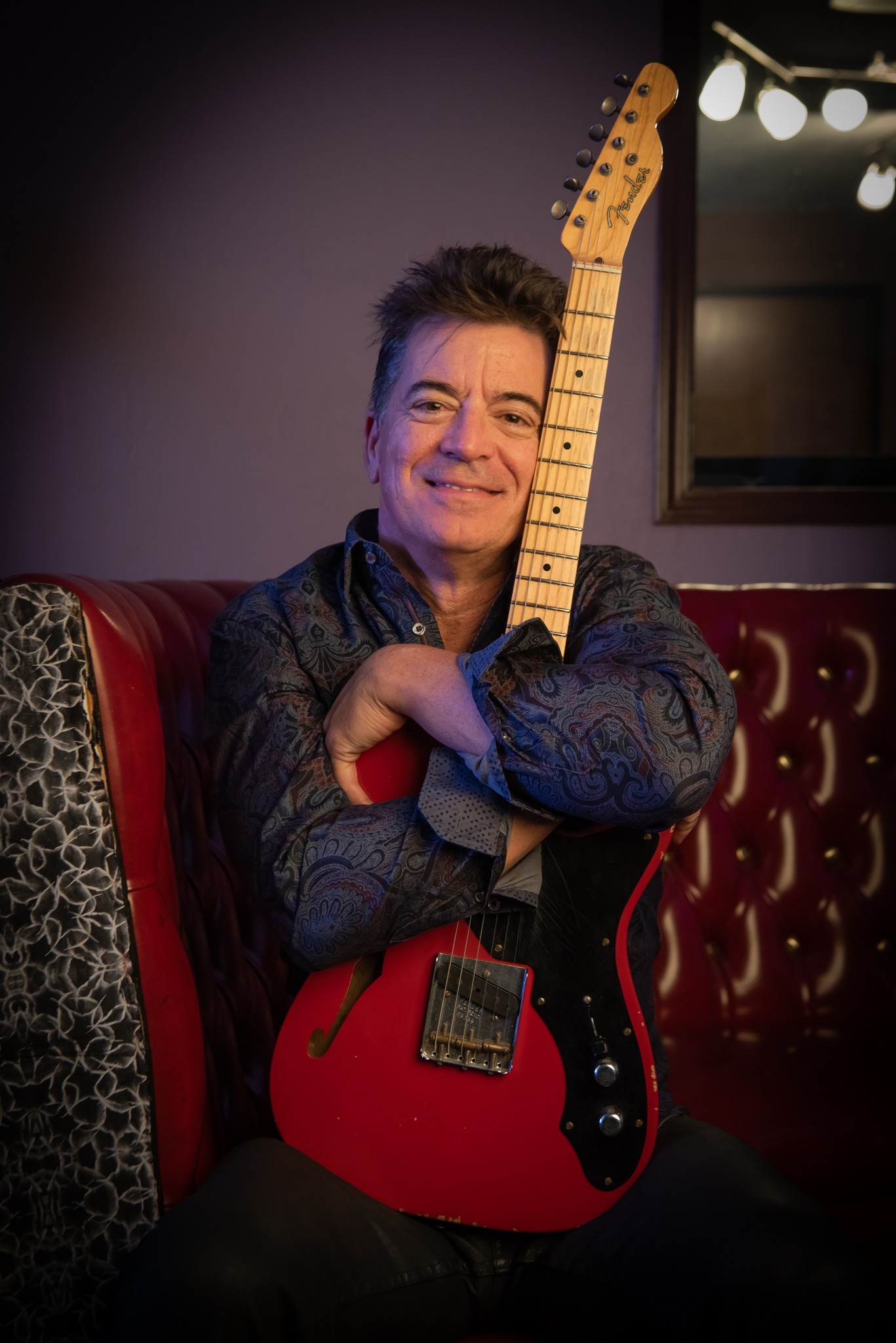Singer/songwriter/guitarist Lee Shupp’s lustrous baritone is an ideal vocal vehicle for conveying his songs about preserving through the slings and arrows of life’s outrageous fortune. The roots rock/Americana performer is a Texan native who currently lives in the San Francisco area and has accumulated a formidable body of live work playing with Bay Area acts such as The Blue Light Revue, The Collective, Chick Jagger, and the Thrillseekers, and Bohemian Luv Jones, among others. His new collection Rise Up features eight succinct and fireworks-packed songs that will light up a listener’s day. His pyrotechnic and deeply felt guitar playing avoids cliché, and the consideration given to each track ensures there isn’t a dud among Rise Up’s running order.
URL: https://leeshuppmusic.com
He kicks off with the intensely personal “Here There Be Dragons”. The recurring slide guitar work laced through the arrangement fills it with fire it would otherwise miss. However, Shupp never overcooks the song’s promise. Its mid-tempo pace has plenty of bounce rather than coming off as an inexorable plod. Shupp’s slightly declamatory vocal is a perfect complement to the arrangement. He has a way with words that doesn’t overshadow the song’s musicality and delivers a compelling message.
“Ride Tall in the Saddle” lacks the opener’s bounce. It is not a lesser tune for it. The addition of an organ to Shupp’s musical stew distinguishes this tune. Multi-tracked vocals likewise bring another dimension to the cut. The song’s lyrical message makes it one of the album’s central tracks, and Shupp sings it with exuberant zest. His stylishly woozy jazz-inflected ode to high-grade tequila “Papa Patron” is full of excellent guitar work and boozy charm. It isn’t one of the major tracks included on Rise Up. However, it does deliver a welcome contrast in mood after the comparative seriousness of the two preceding cuts.
APPLE MUSIC: https://music.apple.com/us/album/rise-up/1708172116
Pop-rock influences preside over “One Step Ahead of the Sandman” as we return to serious songwriting territory. Sweetening the life and death message of the lyrics with those influences is a smart move, and the backing vocals are especially effective at leavening the song’s mood. “Stay” has a stronger rock vein than the earlier track, but pop influences creep at scattered points in the arrangement. Shupp does a consistently excellent job of blending various sounds throughout Rise Up. It ends up achieving a distinctive tone he can claim to be his own.
The thoughtful acoustic stirrings of the finale “Safe and Sound” ends Rise Up on a gentler note than it begins. It gives Shupp a chance to show deeper layers than the earlier performances allowed, especially vocally, while boasting the same satisfying completeness in the album’s other tracks. There may be tracks that do not stand out as much as others. However, Lee Shupp’s Rise Up is a thoroughly satisfying musical experience with tremendous heartfelt appeal. Moreover, it reveals an artist engaged with important songwriting themes worth exploring. He performs each of the album’s eight songs with an audible sense of stakes guiding his art. To put it bluntly, Lee Shupp means it.
Garth Thomas

